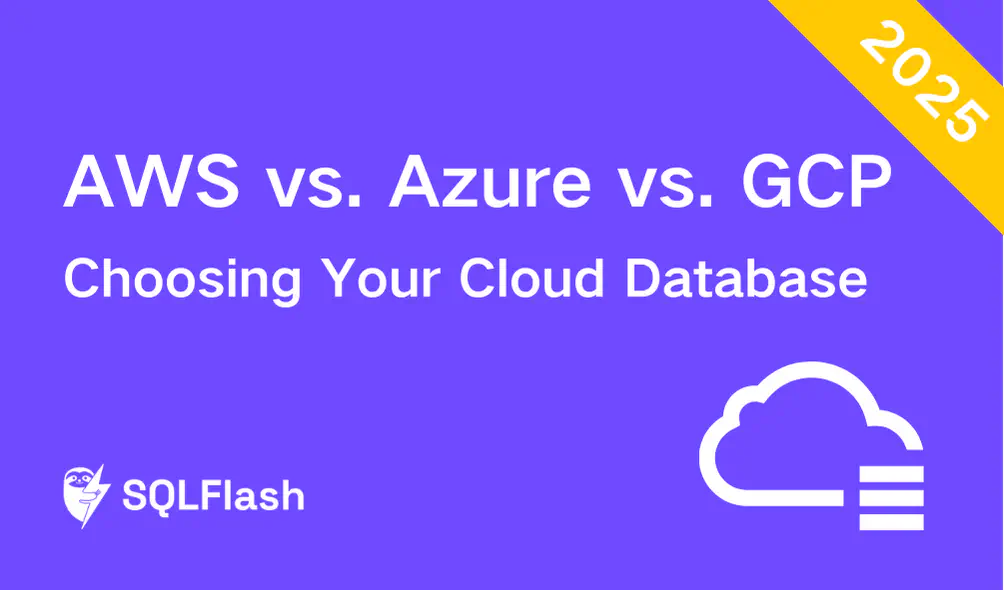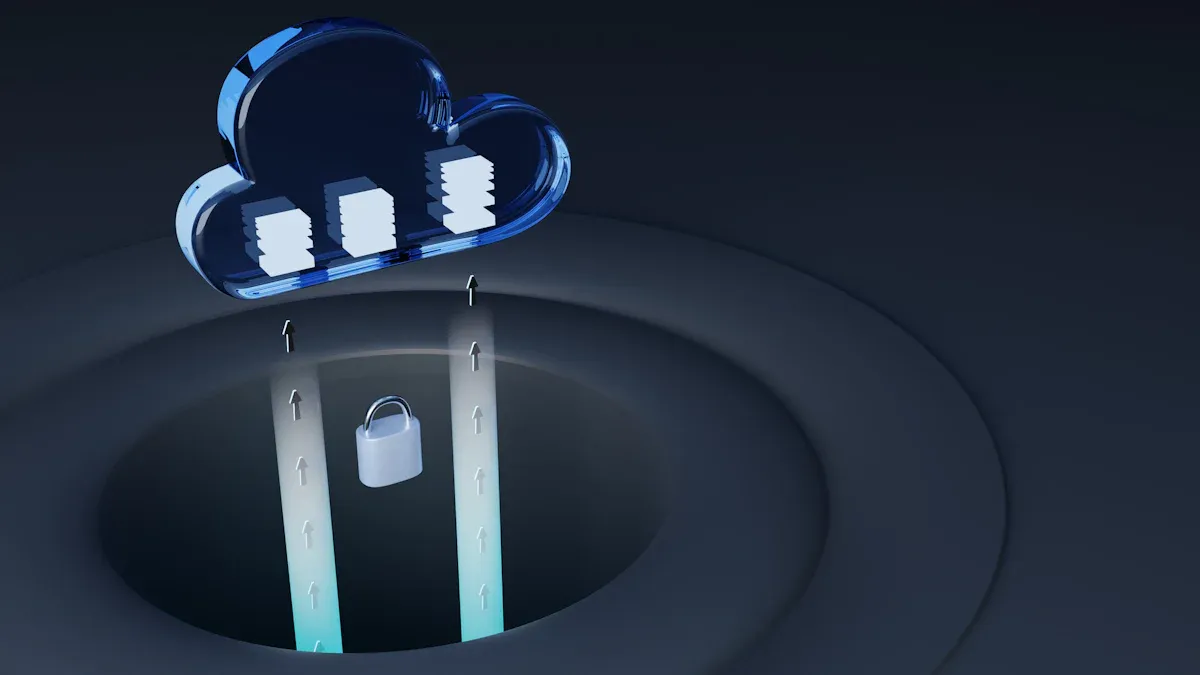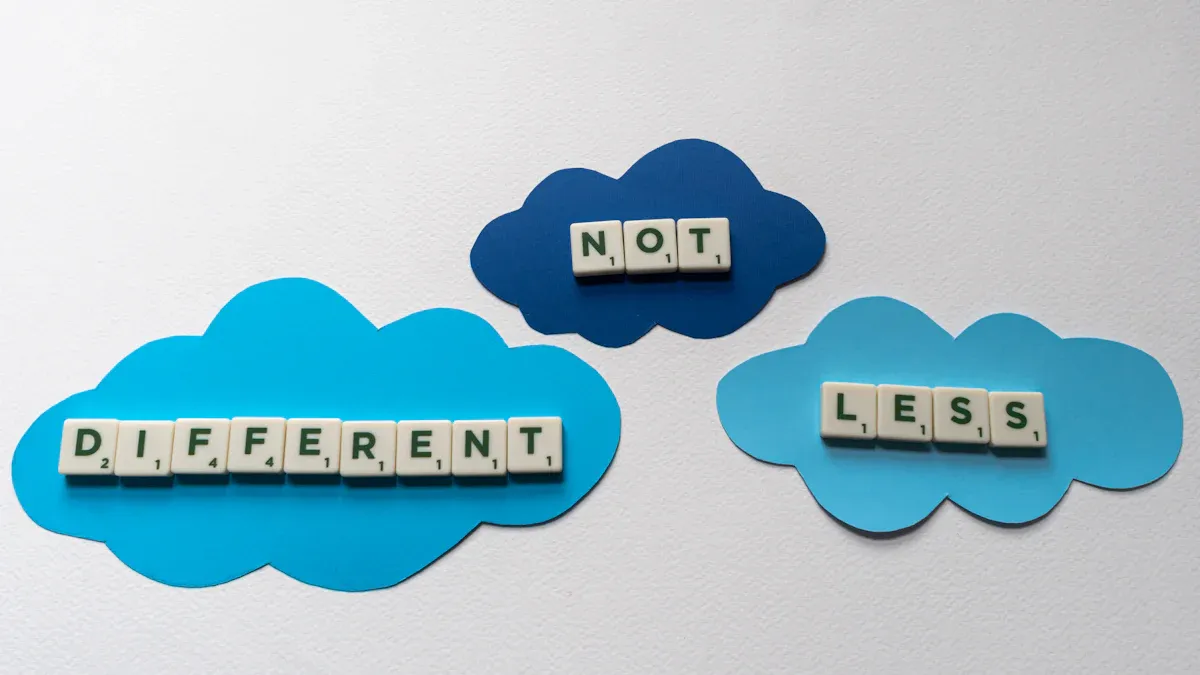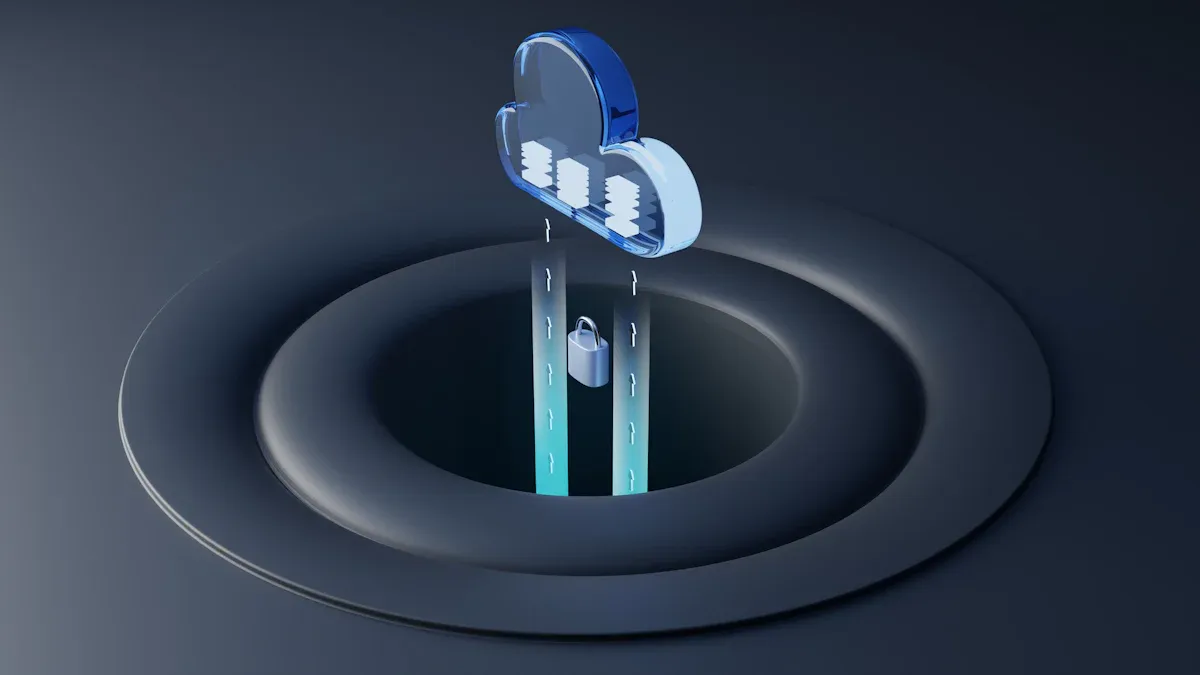AWS vs. Azure vs. GCP: Choosing Your Cloud Database in 2025



Image Source: unsplash
Selecting the right AWS Azure GCP Database in 2025 is crucial for aligning with your business objectives and technical requirements. According to the latest market share statistics, AWS Azure GCP Database providers show AWS leading at 31%, Azure at 21%, and GCP at 12%.
| Provider | Market Share |
|---|---|
| AWS Azure GCP Database | 31% |
| AWS Azure GCP Database | 21% |
| AWS Azure GCP Database | 12% |
When evaluating which AWS Azure GCP Database provider best fits your needs, consider the unique strengths of each. AWS Azure GCP Database offers extensive database options and seamless integration, Azure stands out in Microsoft-centric environments, and GCP is recognized for its analytics innovation. Use this AWS Azure GCP Database comparison to ensure your selection supports your company’s future growth.

Image Source: pexels
When you compare aws, azure, and gcp database offerings in 2025, you need to focus on the features that matter most for your business. The aws vs azure vs gcp comparison centers on how each cloud provider supports different workloads, scales with demand, and integrates with other cloud computing platforms. You should look at the range of databases, analytics capabilities, and hybrid integration options.
Tip: Understanding the strengths and trade-offs of aws, azure, and gcp helps you make informed decisions in the fast-changing data engineering market.
Here is a concise table showing the unique database features offered by each cloud provider:
| Database Type | AWS | Azure | GCP |
|---|---|---|---|
| Relational | Amazon RDS | Azure SQL Database | Google Cloud SQL |
| NoSQL | Amazon DynamoDB | Azure Cosmos DB | Google Cloud Datastore |
| Big Data | Amazon Redshift | Azure Synapse Analytics | Google BigQuery |
You see aws providing a broad selection of database services, including managed relational, NoSQL, and big data solutions. Azure stands out with its deep integration into Microsoft products and strong hybrid cloud capabilities. GCP leads in analytics and AI, offering advanced tools like BigQuery and Vertex AI for data-driven applications.
You should also consider environmental sustainability when choosing a cloud provider. Microsoft Azure discloses its scope 3 emissions, which account for most of its total emissions, including those from azure services. Google Cloud Platform aims to run all operations on carbon-free energy by 2030 and offers tools to help you optimize for sustainability. AWS will provide customers with the carbon footprint of their aws service usage and forecasts for emissions reduction.
The aws vs azure vs gcp comparison reveals distinct strengths and weaknesses for each provider. You need to weigh these factors based on your business goals and technical requirements.
AWS Strengths:
Wide range of services
Scalability for global workloads
Established brand and reliability
AWS Weaknesses:
Complexity in managing multiple services
Pricing can be difficult to predict
Azure Strengths:
Seamless integration with Microsoft products
Advanced machine learning capabilities
Hybrid cloud support for on-premises and cloud resources
Azure Weaknesses:
Complexity in configuration
Limited toolset compared to aws
GCP Strengths:
Leading machine learning and big data services
Cost-effective solutions for analytics-heavy workloads
Recognized as the most environmentally friendly cloud infrastructure
GCP Weaknesses:
Complexity in setup and management
Smaller toolset compared to aws and azure
When you conduct an aws vs azure vs gcp comparison, you notice aws offers unmatched breadth in database services, making it versatile for many business needs. Azure excels in hybrid integration, allowing you to connect on-premises and cloud resources with ease. GCP stands out for its analytics and AI strengths, making it ideal for organizations focused on data-driven innovation.
You should also factor in sustainability initiatives. Google Cloud Platform leads in environmental responsibility, aiming for carbon-free operations by 2030. Microsoft Azure focuses on green data centers and industry partnerships. AWS provides insights into your carbon footprint and forecasts for emissions reduction.
The aws vs azure vs gcp comparison gives you a clear view of the benefits and trade-offs of each cloud provider. You can match your needs to the right platform by considering features, strengths, weaknesses, and sustainability efforts. This approach helps you maximize value from cloud computing platforms and database services in 2025.
You need reliable performance from your cloud databases. AWS, Azure, and GCP each offer managed relational database services that support popular engines like PostgreSQL and MySQL. These platforms deliver high throughput and low latency for transactional workloads.
AWS provides Amazon RDS for PostgreSQL and MySQL, which optimize read and write operations for demanding applications.
Azure offers Azure Database for PostgreSQL and MySQL, with built-in performance tuning and monitoring tools.
GCP delivers Google Cloud SQL for PostgreSQL and MySQL, focusing on consistent performance for web and mobile apps.
Note: You can expect automatic backups, failover, and monitoring across all three cloud providers, which helps maintain database health and performance.
Scalability is a key benefit when you choose cloud platforms for relational databases. You can scale resources up or down based on your workload needs. The aws vs azure vs gcp comparison highlights several features that support growth and flexibility.
| Cloud Provider | Service Name | Scalability Features |
|---|---|---|
| AWS | Amazon RDS | Managed solutions for MySQL, PostgreSQL, etc., with Multi-AZ deployments for high availability. |
| Amazon Aurora | Combines performance of commercial databases with the simplicity of open-source databases. | |
| Azure | Azure SQL Database | Fully managed service for OLTP and OLAP workloads, based on Microsoft SQL Server. |
| Azure Cosmos DB | Globally distributed, multi-model database with high availability and low latency. | |
| GCP | Google Cloud SQL | Fully managed for MySQL, PostgreSQL, and SQL Server, designed for OLTP workloads. |
| Cloud Spanner | Combines traditional database features with NoSQL scalability for large-scale applications. |
You can deploy databases across multiple regions, ensuring high availability and disaster recovery. AWS, Azure, and GCP all support automatic scaling, so your applications stay responsive as demand changes.
Pricing models for cloud relational databases vary across providers. You should compare options to control cost and maximize value. AWS, Azure, and GCP offer flexible pricing plans.
| Pricing Model | Description | Providers Offering |
|---|---|---|
| On-Demand / Pay-As-You-Go | Pay for resources by the second, minute, or hour with no upfront commitment. | AWS, Azure, Google Cloud |
| Reserved Instances / Commitments | Pre-pay for resources for 1-3 years in exchange for discounted rates. | AWS, Azure, Google Cloud |
| Savings Plans / Flexible Commitments | Commit to a specific spend level over 1-3 years (flexible across instance types, operating systems, regions, etc.). | AWS, Azure, Google Cloud |
| Sustained Use Discounts | Automatic discounts for consistent usage over time — no commitment needed. | Google Cloud |
You can choose on-demand pricing for short-term projects or reserved instances for long-term workloads. Google Cloud Platform offers sustained use discounts, which help you save money if you run databases continuously. AWS and Azure provide savings plans and reserved commitments for predictable workloads.
The aws azure gcp database comparison shows that each provider delivers strong performance, scalable features, and flexible pricing. You can select the best option by matching your business needs to the benefits offered by Amazon Web Services, Microsoft Azure, and Google Cloud Platform.
When you explore NoSQL databases on cloud platforms, you see each provider offering unique features and benefits. AWS, Azure, and GCP deliver managed NoSQL services that support modern application needs. You can review the aws vs azure vs gcp comparison in the table below:
| Cloud Provider | NoSQL Database Option | Type | Key Features |
|---|---|---|---|
| AWS | Amazon DynamoDB | Key-value and Document | Fully managed, serverless, automatic scaling, integrated with AWS ecosystem |
| Azure | Azure Cosmos DB | Multi-model (Document, Key-value, Graph, etc.) | Globally distributed, serverless options, seamless integration with Azure services |
| GCP | Firestore | Document | Real-time synchronization, serverless, integrated with Firebase and Google Cloud |
You find Amazon DynamoDB leads in price efficiency and performance. It offers strong consistency and advanced transaction features, making it a top choice for high-traffic applications. Azure Cosmos DB stands out with its flexibility in data models and global distribution. This service supports hybrid cloud and on-premise solutions, which is ideal for businesses using Microsoft Azure. GCP Firestore works well for small teams and startups. It provides quick, scalable MVPs and integrates smoothly with Google Cloud Platform services. If your project requires handling massive datasets, GCP Bigtable supports large-scale needs, powering services like Gmail and YouTube.
Tip: You should match your NoSQL database choice to your workload. DynamoDB fits high-throughput needs, Cosmos DB suits hybrid and multi-model requirements, and Firestore or Bigtable excel in scalable, real-time applications.
Cloud analytics services have transformed how you process and analyze data. AWS, Azure, and GCP each offer a rich set of analytics tools, but their strengths differ. You can compare their core analytics services in the table below:
| Service Type | AWS Services | Azure Services | GCP Services |
|---|---|---|---|
| Data warehouse | Amazon Redshift | Azure Synapse Analytics | BigQuery |
| Machine Learning | SageMaker | Machine Learning | Vertex AI |
| Data analytics | Amazon QuickSight | Microsoft Power BI | Looker |
| Real-time analytics | Kinesis Data Analytics | Stream Analytics | Dataflow |
You see AWS Redshift excel in performance and scalability, with deep integration into the Amazon Web Services ecosystem. Azure Synapse Analytics combines big data and traditional warehousing, offering built-in AI tools like Power BI. This makes it a strong choice for organizations already using Microsoft Azure. GCP BigQuery stands out for its serverless architecture and seamless scalability. It handles large datasets and complex queries efficiently. BigQuery also integrates advanced machine learning, making it a leader in analytics and AI innovation.
You should choose AWS if you need robust NoSQL leadership and a wide range of analytics services. Azure works best for businesses that rely on Microsoft tools and need hybrid cloud support. GCP leads in analytics and AI, offering unmatched scalability and innovation for data-driven projects. When you evaluate the aws azure gcp database options, consider your technical requirements, cost, and future growth. This approach ensures you select the right cloud computing platform for your analytics and NoSQL workloads.

Image Source: unsplash
You need strong security and compliance when you choose a cloud database. AWS, Azure, and GCP all meet global standards like ISO 27001, HIPAA, FedRAMP, and GDPR. Each provider gives you tools to manage compliance and track your data privacy. You can see the comparison in the table below:
| Cloud Provider | Compliance Standards | Management Tools |
|---|---|---|
| AWS | ISO 27001, HIPAA, FedRAMP, GDPR | AWS Artifact for compliance reports |
| Azure | ISO 27001, HIPAA, FedRAMP, GDPR | Azure Compliance Manager for tracking |
| GCP | ISO 27001, HIPAA, FedRAMP, GDPR | Compliance Reports Manager for documentation |
AWS offers fine-grained access controls and encryption for your data. Azure provides advanced threat protection and seamless integration with Microsoft security tools. GCP uses strong identity management and real-time monitoring. You benefit from these features because they help you meet regulatory requirements and protect sensitive information.
You want your database to work well with other cloud services. AWS, Azure, and GCP all provide deep integration within their ecosystems. The table below shows how each platform supports integration:
| Cloud Provider | Integration Capabilities | Key Strengths |
|---|---|---|
| AWS | Highly customizable with extensive service catalog | Fine-grained control, wide range of integrated services |
| Azure | Seamless integration with Microsoft tools | Hybrid cloud, enterprise IT environments |
| GCP | Strong in analytics and data engineering | Intuitive developer experience, machine learning, containers |
AWS gives you the most options for connecting services. Azure stands out if you use Microsoft products or need hybrid cloud support. GCP makes it easy to build analytics and machine learning solutions. You can migrate databases using built-in tools like AWS RDS, Azure SQL Database, and GCP Cloud SQL. The 6 Rs migration strategies help you plan your move to the cloud. You should watch for challenges like vendor lock-in, skill shortages, and the need for a clear migration plan.
Managing cost is a top priority for any cloud database project. AWS, Azure, and GCP offer tools to help you track and optimize spending. You can use AWS Cloud Explorer, AWS Cost and Usage Report, and AWS Budgets. Azure provides Azure Cost Management + Billing. Third-party tools like Densify, Apptio Cloudability, and Flexera Cloud Cost Management work across platforms.
You can save money with AWS Savings Plans and Reserved Instances for predictable workloads. GCP gives you Sustained Use Discounts, which help with variable usage. Azure offers adaptive Reservations for flexible pricing. Tools like Sedai help you scale resources and control costs in real time.
Tip: You should match your cost management strategy to your workload. Choose reserved pricing for steady usage and on-demand for short-term projects.
When you compare AWS, Azure, and GCP database services, you see each provider brings unique benefits in security, integration, and cost. You should select the platform that fits your technical needs, business goals, and future growth plans.
You should match your cloud database choice to your business needs. Startups often benefit from AWS’s pay-as-you-go model, GCP’s developer tools, or Azure’s secure hybrid support. Enterprises with complex integration and compliance needs find value in Amazon Aurora, Google Cloud Spanner, or Microsoft Azure’s robust ecosystem. For analytics-heavy workloads, review the table below:
| Cloud Provider | Analytics Strengths |
|---|---|
| AWS | Big data, deep learning, scalability |
| Azure | Enterprise ML, advanced analytics |
| GCP | AI innovation, deep learning, NLP |
Use this checklist to guide your decision:
Uptime and tier ratings
Latency and location
Network redundancy
Scalability
Security and compliance
Cost optimization
Hybrid cloud integration
Business continuity
Performance and reliability
Customer support
Integrations and compatibility
Vendor reputation
Innovation and future-readiness
Revisit your priorities regularly. Cloud offerings evolve quickly, so your best choice today may change tomorrow.
SQLFlash is your AI-powered SQL Optimization Partner.
Based on AI models, we accurately identify SQL performance bottlenecks and optimize query performance, freeing you from the cumbersome SQL tuning process so you can fully focus on developing and implementing business logic.
Join us and experience the power of SQLFlash today!.